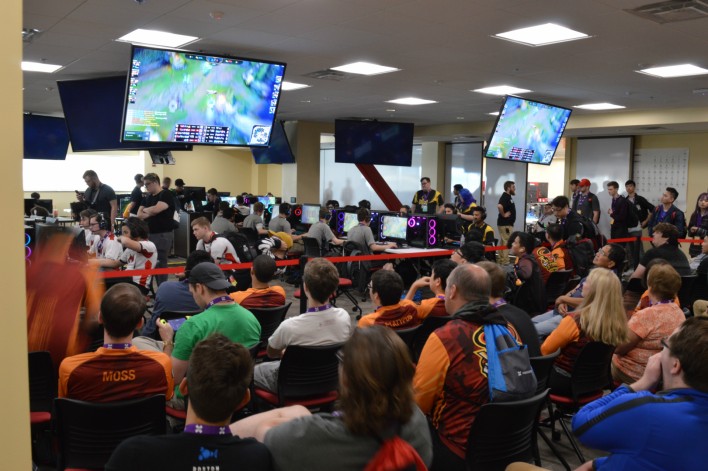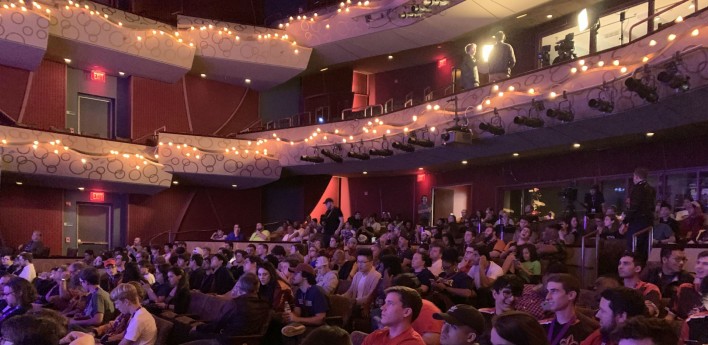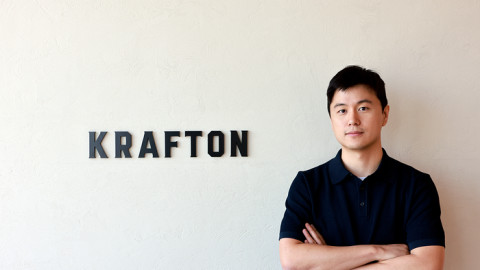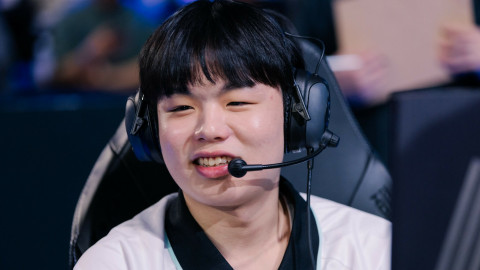
I've never been to Harrisburg, Pennsylvania before, but I had heard of their college esports team, The Storm. Harrisburg University has been on the forefront of collegiate esports adoption and growth for a while now and, on September 19th, the kickoff of the HUE Invitational would represent why they, in my opinion, still remain major players in the collegiate esports ecosystem.
It is hard for most college esports programs to convince those in charge to condone massive esports events on campus. So, I was particularly impressed when I heard that 64 teams from over 30 different schools would be traveling to Harrisburg University compete in Overwatch, League of Legends, and Hearthstone tournaments.
Hundreds of students from all over the country traveling to one location all for the glory of competitive gaming. The $55,000 prize pool isn't much when compared to the outer-world of esports, but it is a serious bit of cash for anyone still in college and the prize pool made things real for fans and player alike.



The HUE Invitational pretty much took over at Harrisburg University over the weekend. I was told that in order to make room for nearly two days of esports (pool play started at 9:00 AM and ended at 11:00 PM) classes for two days were converted to online modules -- classrooms became LAN centers and study rooms became player lounges. The venue was filled with teams huddled around their respective coaches and analysts. It was a mosaic of different schools, each patch of color representing a different esports program colored by the familiar esports jersey designs.

The students wore their colors with pride but not all teams were created equally. Major esports schools like Penn State University, Ohio State University, Maryville University, Michigan State, and the hometown heroes Harrisburg University were all favorites to win and a big part of that is due to the infrastructure and administrative support their esports hopefuls receive.

To learn a little bit about more about how the event came to be and some of the biggest challenges associated with creating it, I spoke to Chad Smeltz, the Esports Program Director at Harrisburg University. Smeltz was the busiest person all weekend and when we sat down to speak I got the impression it was the first time he had sat down for hours:
ND: What would you say your main responsibility is here at the HUE invitational?
Smeltz: I’m responsible for a lot of things and I wear a lot of different hats, but the main thing is getting 64 teams to come here and compete in League of Legends, Overwatch, and Hearthstone followed by making sure that the tournament admins and everything else are running smoothly; From the internet to computers to the gameplay itself. I also make sure that the production side of all the finals is running well and I make sure that everyone is enjoying themselves.
ND: What have been some of the hardest obstacles that you’ve encountered?
Smeltz: Well for any major event, there’s going to be obstacles no matter what. I’m sure you’ve seen your fair share of those. The biggest thing, first off, is getting sixty-plus schools here and making sure they actually show up and everything’s confirmed. That’s really, really hard. Half of these schools are clubs, so you’re getting student-run organizations trying to commit to a tournament months ahead of time and some of these schools they can barely get their own club together sometimes. That’s really, really challenging.
I’ve already had one or two schools drop out right before the tournament and you kind of have to deal with that -- you just have to be constantly vigilant on what’s changing and what’s updating. Other things are the sheer amount of university support it requires to throw a tournament like this. We got the president to move all classes online for two days so that we could use this whole building, so to have that level of support is really awesome, but requires nine months of foresight. You really have to think because, in esports, you can only think a few months ahead usually and, for hosting at a university, you really need to plan out from far away.
ND: Harrisburg is obviously a leader when it comes to collegiate esports because of events like this and the infrastructure that you just talked about.
Smeltz: I would like to think so at least!
*laughter*
ND: I would love to get your opinion on some of these esports competitors here today that don’t have that kind of support. What are some of the things they can do to maybe convince their schools to invest in esports?
Smeltz: So the biggest thing now is you have to have a champion for your cause, and I’m not talking about the highest director or the highest president. You just need to find someone, whether it’s a professor or someone in the student life section, to fight for you in the university world.
Someone who can say, “Hey, here are the reasons why esports are so serious. Here are the reasons why we should continue this and have them able to talk to university leaders for you as well as yourself." It’s really hard not to have that.
The second biggest thing is that I try to convince people to bring out their directors and their presidents and their CFO, or whoever they can convince to come out to an event, whether it’s a professional event or a collegiate event. I probably have four or five directors here from club schools who are here to kind of get a feel for if this is actually something that they want to do. Because if they see this and they realize there’s way more to this than they thought, they’ll want to do something now. It’s very convincing and I like it a lot.
ND: Last question: imagine someone is reading this article and maybe they’re not really familiar with collegiate esports or collegiate in general, but they do understand the scope and they understand that there are a lot of kids at these events and they’re having a good time. What would you say to them if they were to question why these college kids are playing these games?
Smeltz: So I would talk to them about a lot of aspects. I would talk to them about how it’s a competitive sport like anything else, how they have practice time and scrimmage time and communication and team leadership and things that apply to all games. Then I would talk about the esports industry and how players are only one percent of the entire industry.
You have all the marketing and all the business and all of the production and all of the cool things that go into it t-- they are now full-time jobs that provide benefits and provide security and provide stability. Esports didn’t have that before now.
I would talk about how you get to meet people from online and do all of these different things and all of that really gets the wheels turning for a lot of people. The cool thing about esports programs is that you can change your scope based off of what your school is interested in and how much you can put in. It doesn’t have to have a sixty school event, it doesn’t have to have those things. You can get in at a very low barrier of entry.
Pools that day ended late and, as the doors closed, the streets of downtown Harrisburg were filled with high school students eagerly chatting about esports. Some were celebrating, some had with "better-luck-next-time" look on their faces, but all of them
The League of Legends finals came down to the defending collegiate champs, Maryville vs. hometown Harrisburg team. Like most collegiate events I have attended, whatever they may lack in crowd size or prize pool, they more than make up for in passion and fan engagement. To the Harrisburg crowd in attendance, it felt like every skill-shot and every headshot felt personal. There was always a roar of applause whenever a team did something noteworthy -- the crowds personal friends and family were playing on stage after all. That combined with regional pride and the college tendency to take fandom very seriously made for an energetic grand final that made the players appear like true blue, local celebrities.


College esports no long has a long path of acceptance ahead of it. The dominance of Twitch culture and the modern popularity of video games has made esports a recognizable phenomenon to most young people. Across US colleges, it seems likely that any esports program with the dedication can group of students large enough to pack a lecture hall-turned-mainstage.
Not every college will be able to achieve something like the HUE Invitational, but the presence of such an event makes provides a useful proof of concept for aspiring student leaders.
-

Warcraft 3 is my one true love and I will challenge anyone to a game of Super Smash Brothers Melee.
Sort by:
Comments :1
-
0

level 1 wonderlands
I also wanted to go to the tournament, but because of my studies I could not do it. But I didn't miss the next one, because I found a great site, https://samplius.com/free-essay-examples/ which helped me incredibly with the tasks, and saved me a lot of time. Thanks to free essay examples, I immediately found what I needed, quickly passed the material and went to rest and cheer for team Liquid!





